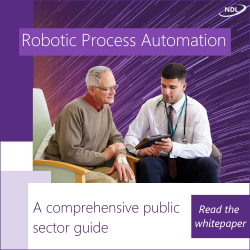Electors should have to prove their identities at polling stations - but not through ‘over elaborate’ procedures
Perfection must not get in the way of a practical solution to verifying voters’ identities at polling stations, the former communities secretary Sir Eric Pickles MP says in his report on election fraud.
The report, commissoned in the fallout of the overturning of a mayoral poll in the London Borough of Tower Hamlets, received wide coverage last week for its finding that police forces have been reluctant to investigate allegations of fraud involving minority ethnic communities. However, its conclusions and recommendations are more wide ranging, raising several questions about the impact of new technology, both to combat and to facilitate fraud.
Technology in the 21st century “threatens to undermine the long-standing rights to privacy established in the 19th century”, Pickles says, citing the fashion for taking “selfies” in the polling station as a threat to the secret ballot. He calls for a specific ban on photography and the use of camera phones in polling stations. While signs deter photography today, “there is insufficient legal sanction against such activity”.
ID checks
On fraudulent voting, Pickles notes that both the Organisation for Security and Cooperation in Europe and the Electoral Commission have recommended introducing ID checks in polling stations in Great Britain.
Options for ID in polling stations include requiring voters to give their date of birth when picking up their ballot paper. This would require “some significant work to produce a record for all electors to be checked against”.
It would also not be secure, as dates of birth can be easily gathered from other sources, including social media. A national insurance number would be more secure but again would need to be checked against a new database.
However he recommends: “The government should consider the options for electors to have to produce personal identification before voting at polling stations. There is no need to be over elaborate; measures could enhance public confidence and be proportional.
"A driving licence, passport or utility bills would not seem unreasonable to establish identity. The government may wish to pilot different methods. But the present system is unsatisfactory; perfection must not get in the way of a practical solution.”
Postal ballot
The report also recommends tightening the rules around postal ballot papers but not ending the practice of offering postal votes on demand.
On voter registration, the Government “should consider the feasibility of an automated approach to checking nationality, to work as part of the existing individual electoral registration infrastructure.”
Pickles notes that “phantom” registrations are not necessarily made with the intention of swaying elections but to enable applications for credit or for connection to utilities or a mobile phone.
The solution he proposes is “a voluntary register for foreign residents, who do not have voting rights, but do have leave to enter or remain. As with the current electoral roll, this data could be provided to credit agencies for a fee, which would help fund the administrative costs.”
Procurement role
The Government should also investigate including a function to retain the IP address used to make online applications in the individual electoral registration system. “This should be subject to a rigorous cost/benefit analysis to ensure that such an approach would be of genuine value to law enforcement,” the report says.
In the foreword, Pickles states: “Electoral fraud and corruption is entwined with other forms of crime as well. Local authorities have a large procurement role.
"A group of people who cheat their way to power are unlikely to hold a higher moral standard when handing out public contracts, or when making quasi-judicial decisions on planning and licensing. Electoral registration fraud is connected with financial crime and illegal immigration.”




